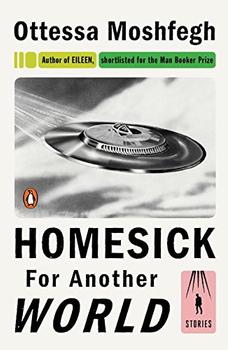Summary | Excerpt | Reviews | Beyond the book | Read-Alikes | Genres & Themes | Author Bio

Stories
by David MeansFollowing a venture into novels with Hystopia in 2016, Instructions for a Funeral is a return to David Means' signature form—the short story. This collection contains 14 stories that have been previously published in The Paris Review, Harper's, The New Yorker, and VICE. In them, Means approaches his characters' tensions and torments with refined, yet digressive prose. Depicting fights, affairs, illnesses, addictions, deaths and murders, this collection critiques how people remember things and explores why we need stories.
Gnawing and confessional, Means brings readers into narratives that span time and place, each a combination of compact observations and broad, panoramic questions about the world. "Fistfight, Sacramento, August 1950" describes a bloody, bone-breaking brawl between teenagers from conflicting working-class and upper-class backgrounds. Over the years, the central character's take on the fight evolves, as he uses present-day knowledge to try to justify past actions. "The Terminal Artist" focuses on a young mother who dies from cancer. A supposedly natural but tragic death shifts to a darker place when years later, the cause of death is reexamined in relation to a string of murders. If not for living in a particular state, seeking out a particular doctor, undergoing surgery on a particular day, and being cared for by a particular nurse, irreparable tragedy may have never happened. As the more sinister cause of death emerges, the narrative is rewritten, a display of how hindsight changes grief.
Other stories range from the 1930s to the present day, giving glimpses of a wide cast of conflicted, isolated characters. A couple tries to reconcile physical and emotional pain during an affair. A paranoid man writes an unintentionally humorous confessional will about friendship betrayals, the mafia and murder. A group of drug addicts take to the road. A mentally ill patient believes he is a royal butler. An FBI duo stake out a farmhouse. Kurt Cobain and Raymond Carver inhabit similar positions in the Pacific Northwest's working class, both turning to substance abuse. A father struggles with the mortality and freedom of his young boy.
Only two of the 14 stories— "Farewell, My Brother" and "Two Ruminations on a Homeless Brother"— are explicitly connected through a shared character, Frank, the narrator's brother. Frank cycles through halfway houses, rehabilitation centers and psychiatric hospitals. Nearly every story in this collection grapples with the ideas of narrative and memory, but Frank's short stories do this most directly and abrasively. Why do we misremember things? What does it mean to remove someone's right to their own narrative story? And why do some choose to view their lives through a narrative lens while others do not? Do stories build empathy? Can telling a story do a disservice to the truth?
There are few threads tying these stories together; however, the collection is far from disparate because of Means' writing style. His award-winning prose is remarkably distinct, with sprawling syntax and convoluted asides. The images Means provides are clean and impactful, such as his descriptions of "nubby hills…ribboned in anguish" and the "soft shish of ice sliding over itself as the tide swept up." Means' characters tend to follow a certain form, too. They live in harsh, fickle Northern states, such as Michigan, Illinois, New York and Washington. They tend to come from working-class backgrounds. Often post-industrial, they feel the push-and-pull between urban and rural ways of life. These hardened, sardonic characters have a tendency toward solitude and worry.
There are some weaknesses to this collection. Nearly every character has the same voice in dialogue sections—Means' trademark meandering style—which reduces the dimension of some of his creations. Likewise, at times, the prose seems needlessly tangled and layered, which can make it difficult to sink into some of the stories. Nevertheless, for readers who are drawn to the cutting, focused form of short stories and contemporary, unconventional voices in the medium, Instructions for a Funeral is a worthy read.
If you're interested in sampling the book before buying, both "The Terminal Artist" and "Fistfight, Sacramento, August 1950" are available online in full.
![]() This review was originally published in The BookBrowse Review in April 2019, and has been updated for the
April 2020 edition.
Click here to go to this issue.
This review was originally published in The BookBrowse Review in April 2019, and has been updated for the
April 2020 edition.
Click here to go to this issue.

If you liked Instructions for a Funeral, try these:

by Deborah Eisenberg
Published 2019
A much-anticipated collection of brilliantly observant short stories from one of the great American masters of the form.

by Ottessa Moshfegh
Published 2017
An electrifying first collection from one of the most exciting short story writers of our time.
Your guide toexceptional books
BookBrowse seeks out and recommends the best in contemporary fiction and nonfiction—books that not only engage and entertain but also deepen our understanding of ourselves and the world around us.